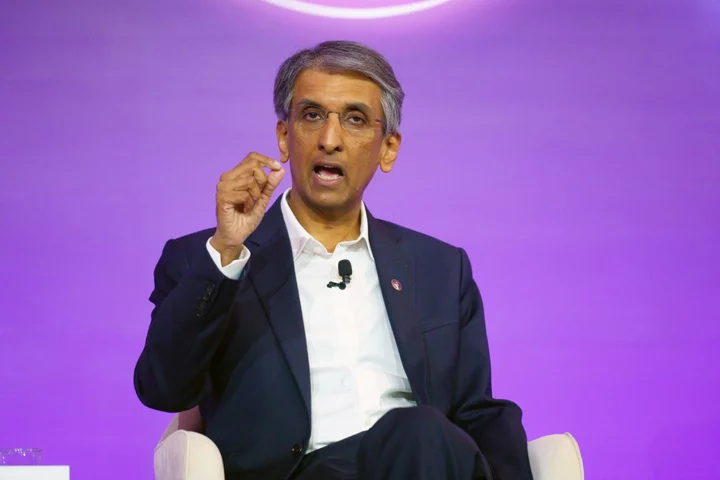Singapore’s state-owned investor Temasek Holdings Pte warned of an uncertain road ahead as it chalked up its worst showing in seven years.
The firm with S$382 billion ($284 billion) in assets posted a total shareholder return of -5.07% for the year ended March 31, the poorest annual performance since 2016. It also suffered a rare net loss.
Its net portfolio value fell from the S$403 billion it held a year earlier. The company said the performance declines were led by a slump in equity valuations, while the S$7 billion loss was driven by mark-to-market accounting.
Investors worldwide are facing a tough time as geopolitical tensions mount, China’s economy slows and central banks raise interest rates to combat inflation. Temasek’s Chief Executive Officer Dilhan Pillay also highlighted risks ranging from economic decoupling to protectionism and costs tied to energy security and transition.
“There are significant key challenges in the future,” Pillay said in a statement on the annual review — his second since taking charge in October 2021. “The investment climate has become much more complex than what we have encountered since the global financial crisis.”
The firm will invest at a moderated pace this financial year but is ready to step up its investments in a market correction, said Chief Investment Officer Rohit Sipahimalani, who flagged the risk of recessions in key developed markets.
“We do believe that to get inflation under control, we probably will need to see a recession, although the timing for that is uncertain,” Sipahimalani said at a news briefing.
Temasek’s woes come as the Singapore government grapples with a budget deficit and rising costs of services. Investment returns from Temasek, GIC Pte and the Monetary Authority of Singapore are among the biggest contributors to the national budget.
Part of the slump in performance relates to fiscal-year timing — much of the drop in public equity valuations that followed Russia’s invasion of Ukraine took place after March 2022. The S&P 500 fell more than 9% during the period.
The mark-to-market losses stemmed from an accounting policy that was introduced in the year ended March 2019, said Chief Financial Officer Png Chin Yee, describing them as “paper losses.”
The firm faced setbacks from the collapse of companies it invested in. Temasek was forced to write off its $275 million investment in FTX after the crypto exchange’s collapse amid allegations of fraud.
“FTX was an aberration,” Pillay said, acknowledging the reputational damage was significant.
Another high-profile investee, Singapore-based startup Zilingo Pte, also suffered a dramatic fall from grace despite boasting several high-profile investors on its board including a representative from Temasek.
Investments in Singapore remained the largest contributor to Temasek’s portfolio for the second year in a row and now stand at 28%, up from the 27% recorded last year. While the firm has remained bullish on China for several years, holdings in the country remained unchanged at 22% of its portfolio.
The firm’s pace of deals decelerated greatly to S$31 billion, compared with the S$61 billion made in the prior year. That comes after Sipahimalani said last year he’d be slowing the speed of deal-making, warning that valuations still hadn’t fallen far enough to reflect the downside he expected to take place.
China Woes
Temasek has continued to back Chinese companies. It added to holdings in Alibaba Group Holding Ltd.’s US shares during the March quarter, according to 13F filings, and it also bought shares in rival e-commerce provider JD.com Inc. Both have fallen in value since then.
China’s benchmark CSI 300 is among the worst-performing indices in the Asia-Pacific region this year. Foreign funds are cutting exposure and limiting flows to the market as the economy weakens and relations with the US remain tense.
“We need to apply a geopolitical lens to all our investments,” Sipahimalani said. “For example, we won’t invest in areas that are in the cross-hairs of US-China tensions,” he said. “We’ll prefer to invest in companies that have access to large domestic markets.”
Temasek is looking to invest more in Southeast Asia due to the region’s favorable demographics and digital economy, Pillay said.
Pillay also said there is a greater need for Temasek to engage more deeply with domestic companies in its portfolio, given the increasing uncertainties and complexity abroad.
Temasek remains the dominant investor in local stalwarts from Singapore Airlines Ltd. to Singapore Telecommunications Ltd. and oil-rig giant Seatrium Ltd.
Portfolio Areas
--With assistance from Andrea Tan.

